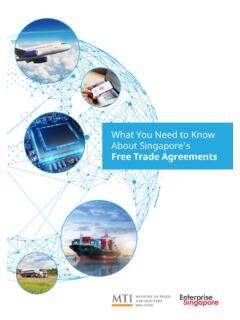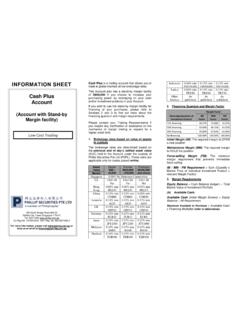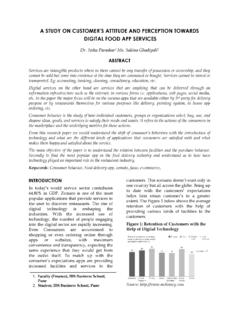Transcription of A Brief History of Neoliberalism - UNAM
1 A Brief History of NeoliberalismThis page intentionally left blank A Brief History ofNeoliberalismDavid Harvey13 Great Clarendon Street, Oxford ox2 6dpOxford University Press is a department of the University of furthers the University s objective of excellence in research, scholarship,and education by publishing worldwide inOxford New YorkAuckland Cape Town Dar es Salaam Hong Kong KarachiKuala Lumpur Madrid Melbourne Mexico City NairobiNew Delhi Shanghai Taipei TorontoWith offices inArgentina Austria Brazil Chile Czech Republic France GreeceGuatemala Hungary Italy Japan Poland Portugal SingaporeSouth Korea Switzerland Thailand Turkey Ukraine VietnamOxford is a registered trade mark of Oxford University Pressin the UK and in certain other countriesPublished in the United Statesby Oxford University Press Inc.
2 , New York David Harvey 2005 The moral rights of the author have been assertedDatabase right Oxford University Press (maker)First published 2005 First published in paperback 2007 All rights reserved. No part of this publication may be reproduced,stored in a retrieval system , or transmitted, in any form or by any means,without the prior permission in writing of Oxford University Press,or as expressly permitted by law, or under terms agreed with the appropriatereprographics rights organization. Enquiries concerning reproductionoutside the scope of the above should be sent to the Rights Department,Oxford University Press, at the address aboveYou must not circulate this book in any other binding or coverand you must impose this same condition on any acquirerBritish Library Cataloguing in Publication DataData availableLibrary of Congress Cataloging in Publication DataData to followTypeset by RefineCatch Limited, Bungay, SuffolkPrinted in Great Britainon acid-free paper byClays Ltd, St Ives plcISBN 0 19 928326 5978 0 19 928326 2 ISBN 0 19 928327 3 (Pbk.)
3 978 0 19 928327 9 (Pbk.)EAN 978 0 19 928326 213579108642 ContentsList of Figures and TablesviAcknowledgementsviiIntroduction1 1. Freedom s Just Another Word ..52. The Construction of Consent393. The Neoliberal State644. Uneven Geographical Developments875. Neoliberalism with Chinese Characteristics 1206. Neoliberalism on Trial1527. Freedom s Prospect183 Notes207 Bibliography223 Index235 Figures and economic crisis of the 1970s: inflation andunemployment in the US and Europe, 1960 wealth crash of the 1970s: share of assets held bythe top 1% of the US population, 1922 restoration of class power: share in national incomeof the top of the population, US, Britain, andFrance, 1913 concentration of wealth and earning power in theUS: CEO remuneration in relation to average USsalaries, 1970 2003, and wealth shares of the richestfamilies, 1982 Volcker shock : movements in the real rate ofinterest, US and France, 1960 attack on labour: real wages and productivity inthe US, 1960 tax revolt of the upper class.
4 US tax rates forhigher and lower brackets, 1913 surpluses from abroad: rates of return onforeign and domestic investments in the US,1960 flow of tribute into the US: profits and capitalincome from the rest of the world in relation todomestic pattern of foreign direct investments, international debt crisis of 1982 in the major maquila sectors in Mexicoin Korea goes abroad: foreign direct investment, geography of China s opening to foreigninvestment in the income inequality in China: rural and urban,1985 growth rates , annually and by decade,1960 hegemony of finance capital: net worth and ratesof profit for financial and non-financial corporationsin the US, 1960 deteriorating position of the US in global capitaland ownership flows, 1960 2002: inflow and outflow ofUS investments and change in foreign ownership shares of capital inflows: foreign loans, foreigndirect investments, and contractual alliances,1979 employment structure in China, 1980 2002128 AcknowledgementsFigures , , and are reproduced by kind permission of the GuilfordPress from P.
5 Dicken, Global Shift: Reshaping the Global Economic Map in the 21stCentury. 4th Edition, is reproduced courtesy of MIT Press Journals from Thomas Pikettyand Emmanuel Saez, Income Inequality in the United States, 1913 1988, TheQuarterly Journal of Economics, 118:1 (February, 2003).Figure is reproduced courtesy of J. Perloff from Wu, X and Perloff, J, China sIncome Distribution over Time: Reasons for Rising Inequality. CUDARE WorkingPapers is reproduced courtesy of Verso Press from R. Pollin, Contours ofDescent, , , , and are reproduced by kind permission of G rardDum nil and are available on the website , and reprinted by permission of the publisher from CapitalResurgent: Roots of the Neoliberal Revolution by G rard Dum nil and DominiqueL vy, translated by Derek Jeffers, Cambridge, Mass.
6 : Harvard University Press,Copyright 2004 by the President and Fellows of Harvard is reproduced courtesy Blackwell Publishing from S. Corbridge, Debtand Development, and TablesThis page intentionally left blank IntroductionFuture historians may well look upon the years 1978 80 as a revo-lutionary turning-point in the world s social and economic 1978, Deng Xiaoping took the first momentous steps towardsthe liberalization of a communist-ruled economy in a country thataccounted for a fifth of the world s population. The path thatDeng defined was to transform China in two decades from a closedbackwater to an open centre of capitalist dynamism with sustainedgrowth rates unparalleled in human History . On the other side ofthe Pacific, and in quite different circumstances, a relativelyobscure (but now renowned) figure named Paul Volcker tookcommand at the US Federal Reserve in July 1979, and within a fewmonths dramatically changed monetary policy.
7 The Fed thereaftertook the lead in the fight against inflation no matter what its con-sequences (particularly as concerned unemployment). Across theAtlantic, Margaret Thatcher had already been elected PrimeMinister of Britain in May 1979, with a mandate to curb tradeunion power and put an end to the miserable inflationary stagna-tion that had enveloped the country for the preceding , in 1980, Ronald Reagan was elected President of the UnitedStates and, armed with geniality and personal charisma, set the USon course to revitalize its economy by supporting Volcker s movesat the Fed and adding his own particular blend of policies to curbthe power of labour, deregulate industry, agriculture, and resourceextraction, and liberate the powers of finance both internally andon the world stage.
8 From these several epicentres, revolutionaryimpulses seemingly spread and reverberated to remake the worldaround us in a totally different of this scope and depth do not occur by acci-dent. So it is pertinent to enquire by what means and paths the1new economic configuration often subsumed under the term globalization was plucked from the entrails of the old. Volcker,Reagan, Thatcher, and Deng Xaioping all took minority argu-ments that had long been in circulation and made them majoritar-ian (though in no case without a protracted struggle). Reaganbrought to life the minority tradition that stretched back withinthe Republican Party to Barry Goldwater in the early 1960s.
9 Dengsaw the rising tide of wealth and influence in Japan, Taiwan, HongKong, Singapore, and South Korea and sought to mobilize marketsocialism instead of central planning to protect and advance theinterests of the Chinese state. Volcker and Thatcher both pluckedfrom the shadows of relative obscurity a particular doctrine thatwent under the name of Neoliberalism and transformed it into thecentral guiding principle of economic thought and it is with this doctrine its origins, rise, and implications that I am here primarily is in the first instance a theory of political eco-nomic practices that proposes that human well-being can best beadvanced by liberating individual entrepreneurial freedoms andskills within an institutional framework characterized by strongprivate property rights, free markets, and free trade.
10 The role ofthe state is to create and preserve an institutional frameworkappropriate to such practices. The state has to guarantee, forexample, the quality and integrity of money. It must also set upthose military, defence, police, and legal structures and functionsrequired to secure private property rights and to guarantee, byforce if need be, the proper functioning of markets. Furthermore,if markets do not exist (in areas such as land, water, education,health care, social security, or environmental pollution) then theymust be created, by state action if necessary. But beyond thesetasks the state should not venture. State interventions in markets(once created) must be kept to a bare minimum because, accordingto the theory, the state cannot possibly possess enough informationto second-guess market signals (prices) and because powerfulinterest groups will inevitably distort and bias state interventions(particularly in democracies) for their own has everywhere been an emphatic turn towards neoliber-alism in political-economic practices and thinking since the , privatization, and withdrawal of the state frommany areas of social provision have been all too common.






